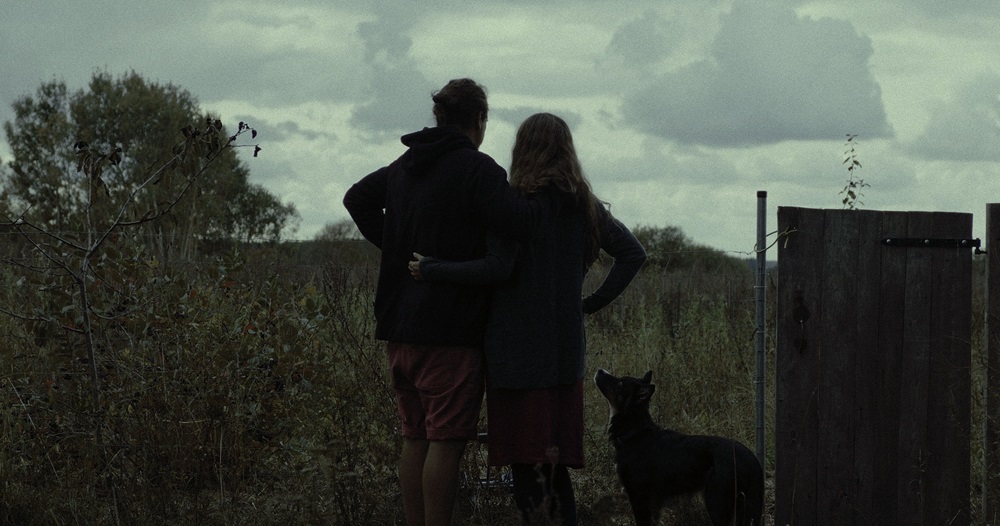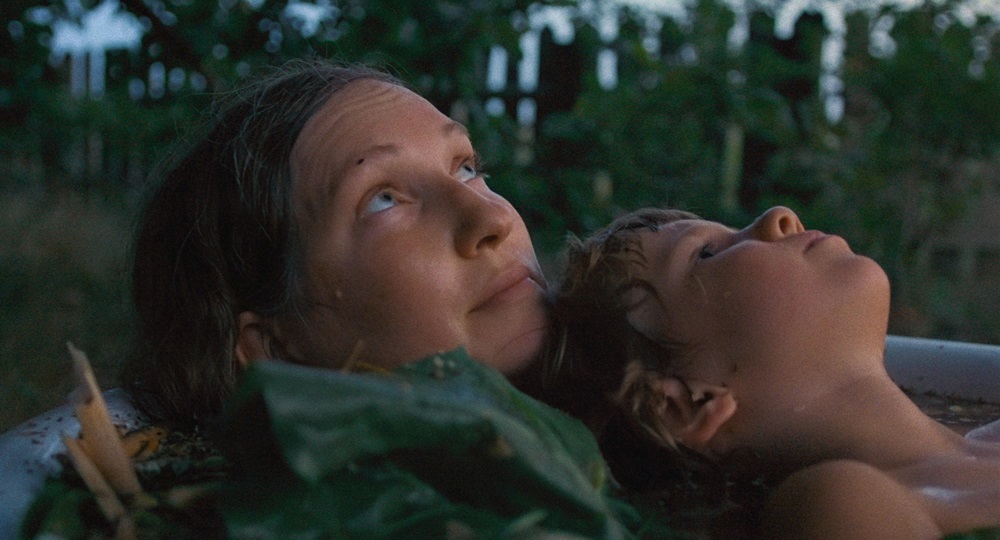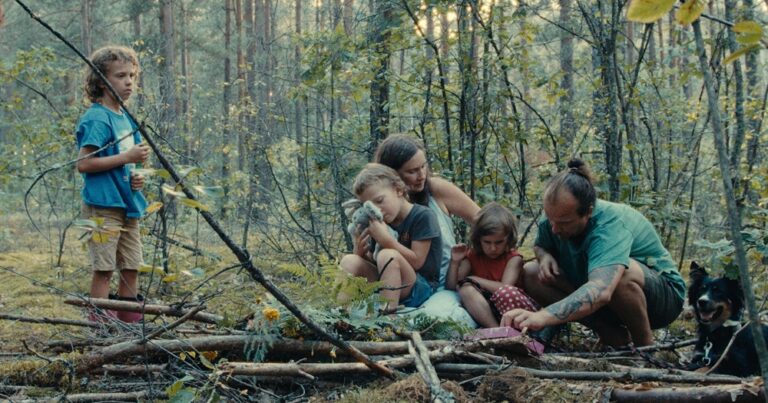Duda’s incisive documentary paints an intimate yet unflinching portrait of a family grappling with the collision of their dreams and a humanitarian emergency. As the forest becomes a crossing point for refugees fleeing violence in the Middle East and Africa, the family finds themselves facing questions of law, humanity, and the cost of doing what’s right.
“Belarus Pushes Them Out, and Our Government Pushes Them Back”
The crisis unfolding at the Belarus-Poland border stems from a calculated political maneuver. In 2021, Belarusian dictator Alexander Lukashenko began luring refugees with promises of easy access to the European Union, turning them into pawns in a geopolitical game. Caught in this cruel trap, these individuals—many of whom acting out of utter desperation—find themselves stranded in the unforgiving forest. Poland’s response has been equally harsh: a pushback policy that forces migrants to return to Belarus, where no safe haven awaits.
Asia and Marek’s home lies at the heart of this fraught borderland. As refugees pass through the woods near their property, their presence disrupts the family’s perception of the forest as a sanctuary. Near the end of the film, one of Asia and Marek’s children comments on this grim observation that encapsulates the futility of the situation: “Belarus pushes them out, and our government pushes them back.”
Duda wisely resists sensationalizing this crisis. Instead, her focus remains on the human stories unfolding in its shadow. Through her lens, we see the family struggling to reconcile the laws of their nation with the more immediate laws of compassion. The children, in particular, bring clarity to this moral conundrum with their unfiltered reflections:
“You can only help them.”
“Illegally.”
“You have to obey the law but—”
“It depends [on]what law it is.”
“—It’s really sad that there’s a law that you can’t help.”
“It depends on you whether they will survive.”
This exchange of dialogue, delivered with the directness only children can muster, cuts to the heart of the film’s themes. “Forest” underscores the innate human understanding that helping those in need is not just a choice but a duty, regardless of bureaucratic obstacles.

A World of Contrasts: Compassion Versus Convenience
One of the documentary’s most effective tools is its visual storytelling. Cinematographer Zuzanna Zachara-Hassairi depicts the dual nature of the forest with striking precision. Daylight scenes glow with a dreamlike warmth, emphasizing the family’s connection to the natural world. By night, the tone shifts dramatically. Refugees emerge as shadowy figures, their movements captured in stark, handheld footage that conveys both urgency and vulnerability. This visual dichotomy mirrors the family’s inner conflict—between the tranquility they sought and the chaos they can no longer ignore.
The forest itself becomes a metaphor, a place that offers shelter but also hides danger. For the family, it transforms from a sanctuary into a contested space where ideals of freedom and safety clash with harsh realities. As Marek solemnly notes, “Such places no longer exist.”
What elevates “Forest” beyond a mere chronicle of events is its insistence on moral introspection. Through the family’s journey, Duda challenges her viewers to ask themselves difficult questions: Are we willing to act on our principles when doing so comes at a personal cost? Can we uphold our humanity when the rules of society demand otherwise?
Asia’s arc is particularly poignant. Initially envisioning a peaceful life for her children, she comes to realize that her paradise is irrevocably changed. “I thought they would grow up in the heart of nature,” she laments. Yet even as her dream fades, her actions speak to a deeper commitment—to raise her children not just as stewards of the earth but as stewards of humanity.

‘Forest’: A Crisis Close to Home
“Forest” offers an undeniably intimate glimpse into a family caught between their ideals and the unrelenting reality of a humanitarian crisis. But for all its profundity, I couldn’t help but wonder whether Duda’s restrained approach might leave some viewers wanting more. There’s an understated beauty in focusing on the immediate, human-level story, yet the broader geopolitical forces shaping this crisis sometimes feel like an unseen specter lurking just beyond the frame.
Would a more direct engagement with the larger political machinery behind the Belarus–Poland border crisis have added weight to the narrative? Maybe. One can even be excused for feeling that the film misses an opportunity to indict the systems perpetuating this suffering, instead zeroing in on the family’s moral dilemmas. And while this lens is undoubtedly powerful, it risks leaving the bigger picture incomplete for those unfamiliar with the context.
The pacing, too, may test some audiences. The meditative rhythm of life in the forest—so evocative and essential to the film’s atmosphere—at times slows to a crawl, which counters a documentary film’s usual urgent, immediate pacing. Certain scenes linger, as if holding their breath, which might frustrate those eager for momentum or resolution.
Then again, isn’t that precisely the point? “Forest” challenges us to sit with discomfort, to reflect on the tension between action and stillness, law and conscience, safety and humanity.
More DOC NYC Coverage: ‘My Sweet Land’: The Weight of Inherited Wars Seen Through a Boy’s Eyes
Beyond the Forest, a Reckoning
Where “Forest” resonates most is in its insistence that no one is untouched by this crisis. Asia and Marek’s evolution from dreamers of an idyllic life to reluctant participants in a moral reckoning is both heartbreaking and inspiring. Their children’s innocent yet deeply probing dialogues about the refugees highlight the weight of their decisions. Their unfiltered questions echo with moral clarity, forcing both the characters and viewers to confront what it truly means to do the right thing.
In one particularly striking moment, Marek declares, “Such places no longer exist,” acknowledging that their once-idyllic haven has been irreparably altered. This realization extends beyond their family’s story and into a broader contemplation of our world. Can any of us claim a paradise untouched by the crises of our time? And if not, how do we respond?
Ultimately, Lidia Duda’s “Forest” doesn’t offer easy answers. Instead, the filmmaker leaves us with a challenge: to confront our own role in a world where borders—literal and metaphorical—shape the lives of so many. For what it’s worth, the film is a very timely affirmation that while compassion is never without cost, it is always worth the price.

Lidia Duda’s “Forest” had its North American premiere in the International Competition at this year’s DOC NYC. The festival runs from November 13 to December 1, 2024. Follow us for more coverage.


